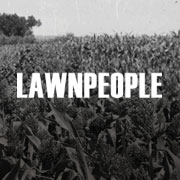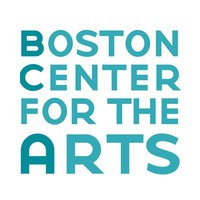 Jacqueline Lawton: Why did you decide to get into theatre? Was there someone or a particular show that inspired you? Natalia Naman: I have always had a penchant for engaging an audience. As a toddler, this manifested in my banging piano keys and turning around for applause from doting parents and grands every fifteen seconds. Regional theater summer acting camp as a pre-teen drew me into the mystery and craft of theater-making and the formal playwriting bug bit hard in college. JL: Next, tell me a little bit about your writing process. Do you have any writing rituals? Do you write in the same place or in different places? NN: Sadly the only ritual I have seems to involve caffeine and calories. But seriously, I let the process dictate the ritual. Sometimes I need to be drowned in an aural soundscape that reflects the world of the play or the mood of the scene. Sometimes I need to sit in a library or coffeeshop with others working around me, but others I need to be alone at home and able to speak lines aloud to really understand what I’m doing. Sometimes I need to do some research, watch a documentary, or read articles about what I’m addressing in the piece before I feel equipped to dive into a scene. Inevitably, coffee and baked goods make recurring appearances.  Mar. 13-23 @ Cherry Lane Theatre JL: Describe for me all the sensations you had the first time you had one of your plays produced and you sat in the audience while it was performed...what was different about the characters you created? How much input did you have in the directing of that work? NN: The first play I had produced was a short play called CROSSING OVER. I was out of town for most of the process, as I was still at Princeton in school and it was produced at Manhattan Theatre Source as part of their Estrogenius Festival. I was a part of the casting process and basically just came back to see the show. It was very different than my current, extremely involved experience working on my play LAWNPEOPLE at the Cherry Lane Mentor Project. Still, I completely loved that experience. Seeing the play come to life felt clearly like the point of it all. The audience was the missing character. That was what made it fundamentally different than what I created, a mere literary blueprint. JL: What do you hope to convey in the plays that you create--what are they about? What sorts of people, situation, circumstances, do you like to write about? NN: I like to write about the underrepresented or too often two-dimensionally represented human experience. Often that means I like to write about minority communities. I hope to connect seemingly unrelated perspectives when I write. When you cut through the layers of culture, society, religion, race, and class, there are some very human experiences that any living person can identify with. One of my hopes when I write is to honor, respect, and accurately represent these complex layers while still peeling back to show the humanity of my characters. I want to ask the audience to see themselves in characters they think they don’t recognize. Bridging gaps in the human connection is the ultimate success, but getting audience members to reconsider how they relate to others in their communities is what I think is the more attainable goal. JL: Tell us about your play and what inspired you to write it. NN: The OLD SHIP OF ZION is about a small community of Black church-goers in Columbus, Georgia-- my hometown-- that are facing the potential closing of their church due to dwindling membership. They are people of faith, but that does not make them impervious to the highs and lows of living. They realize that as important as God is in their lives, the love and support of community is equally crucial to a blessed existence. I was inspired by the Black church experience that I came to know and love growing up in Columbus. The music, the history, the love, the contradictions, the pride and the insecurities all fascinated me and I was interested in exploring the ways in which faith and the black church can both serve and dis-serve its members. JL: What do you want audiences to think about after experiencing your play? NN: I’d love it if they thought about faith and religion: where and how it works and where and how it can come up short. And I hope they consider the power of community and human connection in transforming one’s life for the better. JL: Now, I’d love to hear your thoughts about working in Boston. Finish this sentence
JL: How do you feel the Boston theatre community has addressed the issues of race and gender parity? How has this particular issue impacted you and your ability to get your work produced on the main stages? NN: Well, programs like the XX Playlab are certainly encouraging when it comes to seeking to achieve gender parity. As far as race and gender, I’m thrilled that the Playlab is serving three, local, Black female playwrights this year. I think the issue of race and gender parity is a national one and Boston is not immune to this issue. I appreciate that conversation and initiatives to address this issue are welcome and frequent in Boston and feel our city can really be a leader in the fight to see racial and gender equity in our field. JL: What advice do you have for up-and-coming playwrights? NN: Since you’re probably addicted to Facebook anyway, join the Boston & New England Playwrights group if you’re local. Get involved-- send work in development to reading/development series looking to help you continue your writing process with a creative team. See lots of shows. Network and meet people. Support other writers and theater artists’ careers. These lines will cross soon enough. Be literate-- read lots of plays. If you can, join or form a writers’ group to keep you motivated and supported. Don’t be afraid of workshop and feedback. Love it! Use it. Ask the questions that will help you most. Finally, I love the Dramatists Guild of America. Join it. JL: What’s next for you as a playwright? Where can we follow your work? NN: I’ll be closing a production of my play LAWNPEOPLE at the Cherry Lane the same weekend as this festival. Wish you all could have seen it! Up next on May 4th, come see Roots of Liberty: The Haitian Revolution and the American Civil War, a theatrical performance that I collaborated on as a writer organized by the Underground Railway Theater. It explores the impact of the Haitian Revolution on the antislavery movement and the Civil War and will be held at Tremont Temple closing out a three-day symposium on the 150th anniversary of the Emancipation Proclamation. Further out on the calendar, I’m working with the National Black Theatre in Harlem on a play about the Tulsa Race Riots of 1921. It will be a very interesting project-- something between documentary and narrative theater, pursuing restorative justice-- that we plan to present in Harlem and in Tulsa next year. I’m also expecting my first child, ohhhhhh, literally any day now. :) So being a mom is what’s next for me as a person and I’m thrilled about that.
0 Comments
Your comment will be posted after it is approved.
Leave a Reply. |
My BlogI'm a playwright, dramaturg, and teaching artist. It is here where you'll find my queries and musings on life, theater and the world. My posts advocate for diversity, inclusion, and equity in the American Theatre and updates on my own work. Please enjoy!
Categories
All
Archives
June 2020
Reading List
|



